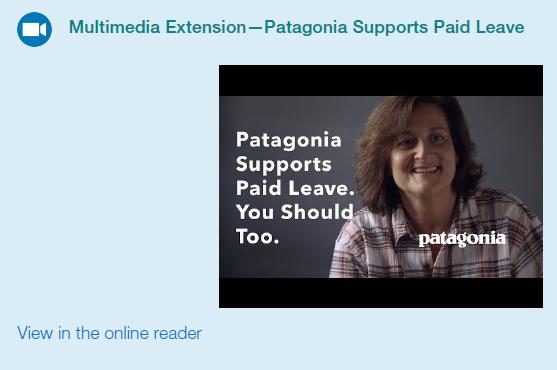Patagonia was founded in 1973 by Yvon Chouinard, a passionate outdoorsman who wanted to design clothing and
Question:
Patagonia was founded in 1973 by Yvon Chouinard, a passionate outdoorsman who wanted to design clothing and gear inspired by his love of the outdoors. Since then, the company has grown to over 2,000 employees and several hundred million dollars in annual revenue. Patagonia specializes in durable, high-end gear for surfers, climbers, skiers, and runners. It is a privately held benefit corporation, which means its board is not accountable to public shareholders. According to Chouinard, Patagonia intentionally hires people who are highly self-motivated to enable the company to encourage employee autonomy and maintain a relatively flat structure. The founder says, "I hate the idea of managing people. I don't like people telling me what to do, so I can't stand to tell other people what to do." He even wrote a book called Let My People Go Surfing, which provides an overview of the company's unique history and philosophy, which is now used for employee onboarding purposes. According to Patagonia's Chief Human Resources Officer, Dean Carter, "There's just no reference for reporting relationships or traditional hierarchies. As a matter of fact, we like breaking them because, often, the best ideas aren't from the manager; they're from the person whose hands are dirty doing the real work." The company embraces the philosophy that the manager should be more of a mentor than a boss. To drive home this point, the company did away with the traditional annual performance ratings so employees don't feel like their managers are constantly judging them.
Patagonia is also known for providing exceptional benefits and perks, including a subsidized café, onsite childcare for employees (introduced in 1981-well before most companies), and flexible scheduling. The company provides childcare as a service to its employees but also treats it as an opportunity to groom future leaders by encouraging socialization and instilling confidence at a young age. As for the flexible work policy, according to Carter, people are allowed to take whatever time they need as long as they are getting their work done. He says, "People are encouraged to live the lives they want and do what they need to do, whether that's horseback riding, surfing, or seeing their kids play. If we're hiring independent people who care about the environment and the outdoors, we certainly can't have a culture that doesn't allow them to do those things." This value is also reflected in the company's policy discouraging lunchtime meetings so employees can practice yoga or go running. Patagonia even promised to keep employees on the payroll during coronavirus-related store closures in 2020, further highlighting the value the organization places on its employees.
The company is able to support this level of autonomy and flexibility by hiring strategically. They take their time to find the right candidate for each position, prioritizing characteristics like independence, passion, and ambition. Then they provide new hires with an immersive orientation and onboarding process, with significant access to senior leadership. Patagonia's nontraditional approach to employee engagement and company culture seems to be paying off. Employee turnover is very low at 4%, and 100% of women who have taken maternity leave from the company have returned to work. The company is also in a strong financial position.
According to Carter, "We're experiencing double-digit growth, despite our desire to control growth, at a time when most retailers and wholesalers are reeling, and even though 1% of our top-line sales are going to the environment.
Questions
1. What are some of the things that make Patagonia a unique workplace? Do you think these contribute to employee motivation?
2. Would you like to work for a company that gave you as much autonomy as Patagonia gives its employees? Why or why not?
3. Do you think Patagonia’s company culture contributes to a positive work/life balance for its employees? How might this relate to motivation?
4. Do you think Patagonia has enjoyed so much success due to its unique company culture, or despite it? Explain.
5. Of all the employee perks that Patagonia offers, which ones would be the most motivating for you? Why?
Step by Step Answer:

Essentials Of Organizational Behavior Bridging Science And Practice
ISBN: 9781453339244
1st Edition
Authors: Talya Bauer, Berrin Erdogan





